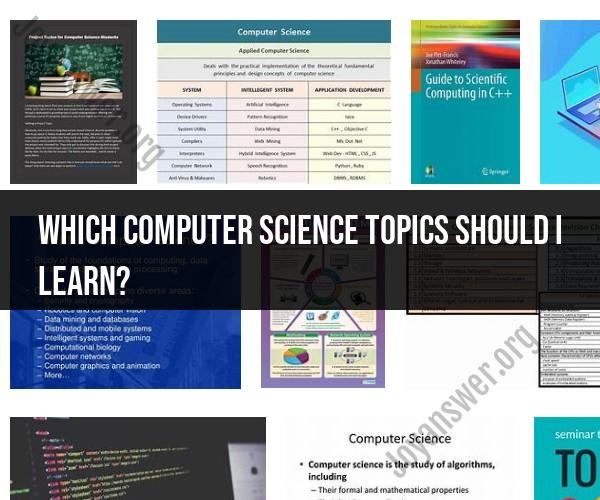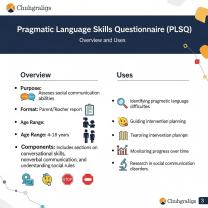Which computer science topics should I learn?
Computer Science is a vast and dynamic field with numerous topics to explore. The choice of topics to learn depends on your interests, career goals, and the specific area of Computer Science you want to specialize in. Here's a list of essential computer science topics that you can consider learning:
Programming Languages:
- Learn languages like Python, Java, C++, and JavaScript. Each language has its strengths and applications.
Data Structures:
- Study fundamental data structures like arrays, linked lists, stacks, queues, and trees. Understanding data structures is crucial for efficient algorithm design.
Algorithms:
- Master algorithm design and analysis. Learn sorting, searching, and graph algorithms, among others.
Databases:
- Explore relational databases (SQL) and NoSQL databases (MongoDB, Redis) and learn how to design, query, and optimize databases.
Operating Systems:
- Understand the basics of operating system concepts, process management, memory management, and file systems.
Computer Networks:
- Study network protocols, TCP/IP, routing, and security principles to grasp the fundamentals of computer networking.
Web Development:
- Learn HTML, CSS, JavaScript, and web development frameworks like React or Angular for building modern web applications.
Software Engineering:
- Gain knowledge of software development methodologies, version control, and software design principles.
Artificial Intelligence (AI):
- Explore AI concepts such as machine learning, deep learning, natural language processing, and computer vision.
Data Science:
- Learn data analysis, data visualization, statistical analysis, and tools like Pandas, NumPy, and Matplotlib.
Cybersecurity:
- Understand cybersecurity principles, encryption, network security, and ethical hacking to protect digital assets.
Cloud Computing:
- Familiarize yourself with cloud platforms like AWS, Azure, and Google Cloud for scalable and cost-effective infrastructure.
Mobile App Development:
- Learn mobile app development for iOS (Swift) and Android (Java/Kotlin) using mobile app frameworks.
Software Testing:
- Study software testing methodologies, automation testing, and quality assurance techniques.
Human-Computer Interaction (HCI):
- Explore user interface design, user experience (UX) design, and usability testing.
Big Data and Analytics:
- Understand big data technologies like Hadoop and Spark for processing and analyzing large datasets.
Computer Graphics:
- Learn about 2D and 3D graphics, rendering techniques, and game development.
Parallel and Distributed Computing:
- Explore parallel processing and distributed systems to work on high-performance computing and scalability.
Ethical and Legal Aspects:
- Gain awareness of ethical considerations, data privacy, and legal issues related to technology.
Quantum Computing (Emerging):
- Stay informed about the emerging field of quantum computing and its potential impact on computation.
Blockchain Technology (Emerging):
- Learn about blockchain principles, cryptocurrencies, and decentralized applications.
Remember that Computer Science is a continuously evolving field, and staying updated with emerging technologies and trends is essential. Start with the foundational topics and gradually explore areas that align with your career goals and interests. Hands-on projects, coding exercises, and real-world applications will enhance your learning experience. Additionally, consider pursuing a degree in Computer Science or related certifications to solidify your knowledge and improve your job prospects.













